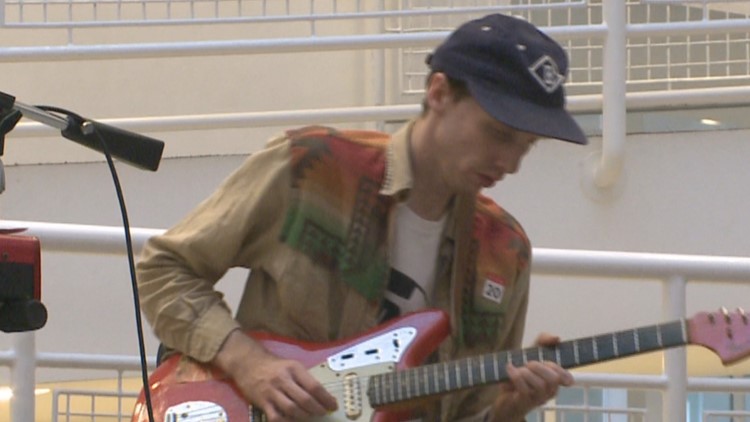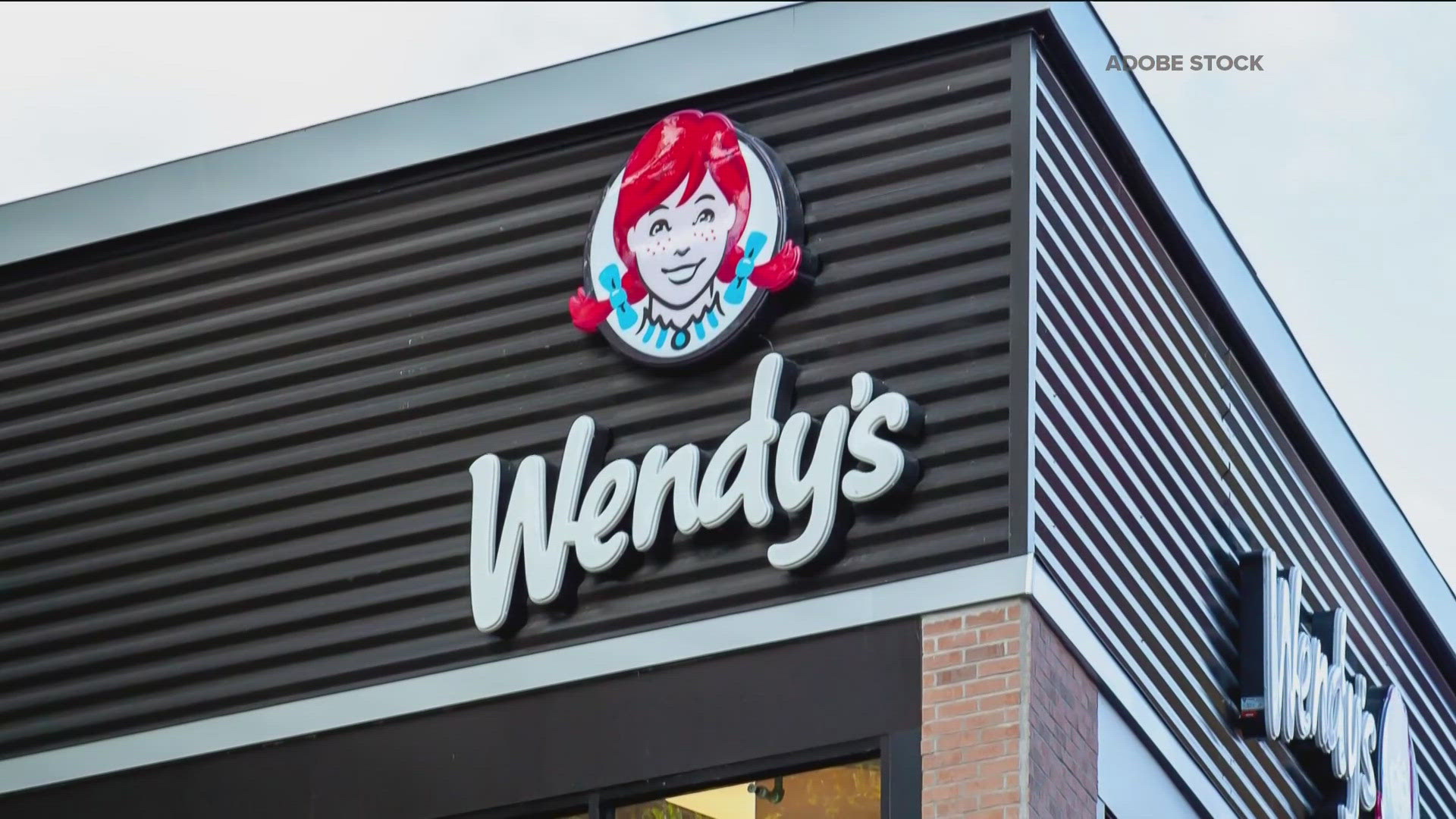Bradford Cox is a Georgia native who has recorded six studio albums and toured the world. He's front man and guitarist for the band Deerhunter. He also appeared in the film Dallas Buyers Club. During a brief visit home to Atlanta, Cox talked with 11Alive's Jeremy Campbell. Dressed in a "688 Club" T-shirt, the musician had just finished dinner with his family in Midtown and was preparing to perform at the High Museum of Art.
Cox recalls Atlanta's indie rock scene as an upstart musician, the value of college radio and the culture fallout he expects as Georgia State University's WRAS 88.5 FM turns over airtime and student control to Georgia Public Broadcasting.
Jeremy Campbell: You are back in Atlanta where you got your start. What do you remember about those days, the Atlanta music scene and getting started?
Bradford Cox: It was very liberated at that time because there wasn't that much competition among the different groups. We all got along even though we played different types of music. We were supportive of each other in a way where we maintained our individuality.
JC: What about Atlanta radio back then? How tough was it to crack in?
BC: It wasn't very tough. It was a community, and it always has been. It's a very rich and artistic community on WRAS and WREK as well. We were always, from an early point, welcomed on there. Me and Cole, from the band Black Lips, used to do an experimental radio show on WREK where we would play religious recordings at half speed and do sort of avant garde things. You know maybe 15 people were out listening , but those fifteen people may have been really affected by it you know?
There's an old saying by the Velvet Underground, the band from New York. Brian said, I don't know the number, but like maybe 10,000 people bought their record in the world when it came out. Though that is considered a low number (but) every single one of those people who bought the album went on to start a band.
I think that is sort of the same thing in Atlanta. It wasn't like there were a lot people at all of our shows or the Black Lips shows. It wasn't like we had a lot of immediate success. But I think everybody that was a part of that scene did something artistically and were able to express themselves. It was a real golden age I think. The main reason being that there was very little competition, and there was very little overwhelming ambition. People did what they wanted to do.
JC: I like what you are saying about it might have not been a big number, but it was inspirational to other people.
BC: Yeah it was. It's inspirational when you see people doing things without profit being the main motivator or without the idea of fame. None of that ever crossed our minds.
I don't believe that any of us thought we would have been remotely successful if we had been aiming for success. My idea of success was to have health insurance you know?
JC: Well in that vein of success, how significant was it when you heard yourself on the radio?
BC: It was very significant. As significant as it was for me, I imagine it was more significant for my parents and my family because it let them know that I was doing something justifiable that was socially accepted. What we were doing at this point was an avant garde and a stream of consciousness. It was not really intended to be mainstream [music]. The attention that we have always gotten has always been a huge blessing to me and a big surprise.
JC: It seems like probably that to people that weren't into the scene, suddenly being on the radio brings some validation?
BC: It was pride. Having your work played was like putting your portrait on a national gallery wall. Your music is being played next to your hero's music. That's what tickled me what I think initially. And also, I grew up very much attracted to the early Atlanta scene. I am even wearing this 688 shirt which was a new wave of punk club here in Atlanta. They brought bands like Sonic Youth and Cabaret Voltaire here in the early to mid 80s. It's a little ironic I am wearing the shirt, but I wear it to honor those who came before.
JC: It's a part of the fabric of this whole legacy.
BC: Exactly! I was born and grew up in Athens, Georgia with the B52s. Georgia has a very relaxed musical heritage that's very potent, but very relaxed.
JC: Have you caught wind what is going on with WRAS?
BC: I have and I am very, very disheartened by the situation. I really wish that Georgia Public Radio would recognize the harm that they could be doing to the culture in this town.
JC: What is it going to do on the radio community and the music community?
BC: There is no telling, but I think that the damages would be much more intense than anybody could foresee. I believe that it will be wide felt and not just this community. I think that there is a broader sense that college radio is dying across the country. I think that there is a very strong sense of people wanting to save it because it is a part of our heritage. It is a part of our parents' heritage. It's a part of an entire generation of musical education. I don't think that it is an antiquity.
JC: Do you remember when you had your first song on WRAS?
BC: I remember being 9 years old and listening to WRAS and WREK because my older, cooler cousins did. I was bored with the mainstream radio even as a child. I remember hearing Pere Ubu which was a punk rock and avant garage band from Cleveland, Ohio from the late 70s. I remember hearing them in my room in 1995 in Marietta, Georgia. I think that is pretty significant.
One could argue, of course, that the internet brings all this here because people are on their computers twenty-four hours a day. I can listen to Pere Ubu on YouTube, but it's not the same. The more information that you have available to you is not equivalent to the information that is curated. I am not saying that in an elitist set of terms, but it is nice sometimes to have a filter or a funnel.
JC: A trusted guide.
BC: A trusted guide! That's what college radio has always been, and I owe a lot of people for hearing us on college radio. Not just here, but in New York, Philadelphia, Los Angeles, and Tokyo. If they do not recognize that their presence is not wanted, they must be like a bull in a china shop. It's just a direct plea to those people. I wish they could understand the potential damage they could be causing. And understand that you can listen to NPR on the internet all day or in your Audi A8 on your digital satellite system.
JC: But not Album 88
BC: No, but Album 88, that's on in a 1985 Volvo on the broken cassette deck you know?



